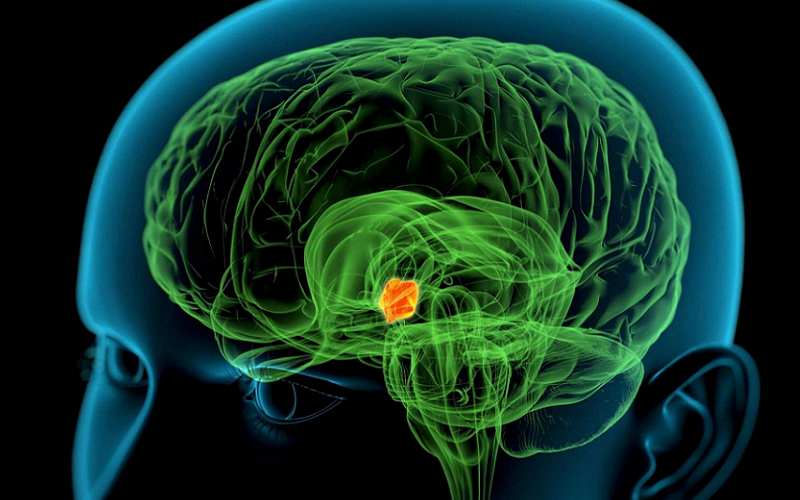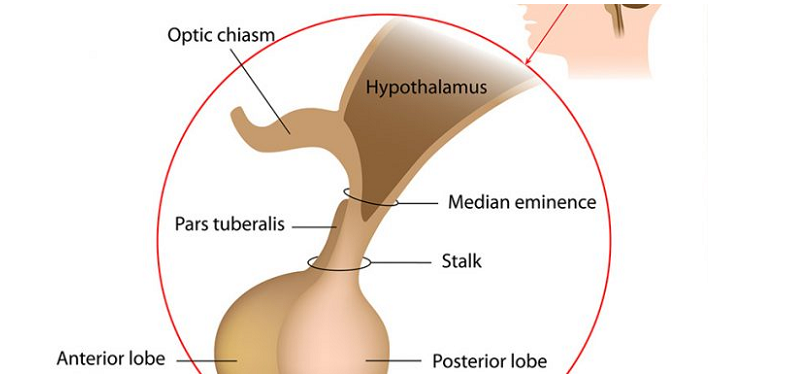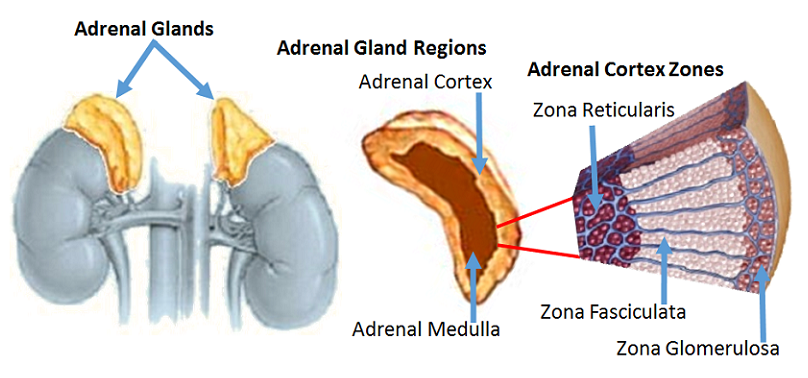
Hormones, often referred to as the body’s chemical messengers, play a pivotal role in regulating numerous physiological processes. Just where in the body are these internal powerhouses produced? Here we examine the intricate workings of the endocrine system, the network responsible for hormone production and regulation. We journey through the brain’s control center, the hypothalamus, to the masterful pituitary gland, and beyond. We also look at the thyroid gland that influences your metabolism, how the adrenal glands respond to stress, and the crucial role the pancreas plays in balancing your blood sugar.
Contents
- Understanding Hormones: The Basics
- The Hypothalamus: The Brain’s Hormonal Control Center
- The Pituitary Gland: The Hormonal Master Gland
- The Thyroid Gland: Hormones for Metabolism and Beyond
- The Adrenal Glands: Hormones Responding to Stress
- The Pancreas: Hormones Balancing Blood Sugar
- The Gonads: Hormones and Reproduction
- Other Hormone-Producing Organs
- References
Understanding Hormones: The Basics
Hormones are more than just biochemical substances; they are the keystones in the architectural design of our body’s functions, influencing everything from growth and metabolism to mood and reproductive health.
Definition and Role of Hormones in the Body
Hormones are chemical messengers produced by the endocrine glands. These messengers are secreted directly into the bloodstream, where they travel to various organs and tissues to exert their influence. They act as signal carriers, instructing different parts of the body on how to function and respond to changing environments. Hormones play a crucial role in maintaining homeostasis – the body’s state of balanced functioning. From insulin regulating our blood sugar levels to adrenaline preparing us for ‘fight or flight,’ each hormone has a specific role that contributes to our overall health.
The Endocrine System: A Brief Overview
Central to the story of hormone production is the endocrine system, a network of glands that coordinates the release and regulation of hormones. This system, while often overshadowed by the nervous system, is equally significant in managing the body’s functions. The endocrine system includes major glands like the pituitary, thyroid, and adrenal glands, each of which we’ll explore in detail later. Understanding the endocrine system is key to appreciating how hormones are produced and how they influence various bodily functions.
How Hormones Influence Brain Health and Wellness
The impact of hormones on brain health cannot be overstated. They play a significant role in regulating mood, cognitive functions, and overall mental well-being. For example, serotonin and dopamine, often dubbed the ‘feel-good hormones,’ are integral in managing our mood and emotions. On the other hand, hormonal imbalances can lead to a variety of health issues, including anxiety, depression, and other mood disorders. Understanding the basic functions and roles of hormones is the first step in appreciating their profound impact on our brain health and wellness.
The Hypothalamus: The Brain’s Hormonal Control Center
The hypothalamus is one of the most crucial elements of the endocrine system. This small but mighty portion of the brain plays a pivotal role in regulating hormone production, acting as the command center for many of the body’s key functions.
Location and Function of the Hypothalamus
Nestled deep within the brain, just below the thalamus and above the brain stem, lies the hypothalamus. This small, almond-sized region, though modest in size, is monumental in its responsibilities. The hypothalamus serves as a critical bridge between the endocrine and nervous systems. It responds to a variety of signals from the body – including light, temperature, hunger, and emotions – and translates these into hormonal responses. By doing so, it helps maintain the body’s internal balance, known as homeostasis [1].
Hormones Produced by the Hypothalamus
The hypothalamus produces several key hormones that govern a wide range of bodily functions. One of these is the corticotropin-releasing hormone (CRH), which influences the body’s stress response by stimulating the production of cortisol. Another is thyrotropin-releasing hormone (TRH), which plays a role in regulating metabolism through its influence on the thyroid gland. Additionally, the hypothalamus produces gonadotropin-releasing hormone (GnRH), which is crucial in controlling reproductive functions. These are just a few examples of the various hormones that originate in this tiny yet vital brain region.
The Hypothalamus’ Role in Regulating Body Functions
The influence of the hypothalamus extends beyond simple hormone production. It also plays a critical role in regulating key body functions such as temperature, hunger, thirst, sleep, and circadian rhythms. The hypothalamus monitors the body’s condition and sends signals to other glands, such as the pituitary, to release hormones as needed. Its ability to integrate and respond to a multitude of physiological signals makes it a master regulator of the body’s homeostasis.

The Pituitary Gland: The Hormonal Master Gland
The pituitary gland is a crucial player in the endocrine system. Often referred to as the “master gland,” the pituitary plays a pivotal role in regulating a wide array of bodily functions through its hormone production.
Anatomy of the Pituitary Gland
Located at the base of the brain, just beneath the hypothalamus, the pituitary gland is a small, pea-sized organ. Despite its diminutive size, it wields immense power over the body’s hormonal balance. The pituitary gland is divided into two parts: the anterior (front) and posterior (back) lobes, each responsible for producing different hormones. These hormones have far-reaching effects, influencing growth, metabolism, reproductive functions, and stress response [2].
Key Hormones Produced by the Pituitary Gland
The anterior lobe of the pituitary gland produces several vital hormones. Growth hormone (GH), for instance, stimulates growth and cell reproduction. Thyroid-stimulating hormone (TSH) directs the thyroid gland to produce hormones that regulate metabolism. The lobe also produces prolactin, which plays a key role in lactation, and adrenocorticotropic hormone (ACTH), which stimulates the adrenal glands. In the posterior lobe, important hormones such as oxytocin, which is involved in childbirth and emotional bonding, and vasopressin (antidiuretic hormone), which regulates water balance in the body, are stored and released.
The Interplay Between the Hypothalamus and Pituitary Gland
The relationship between the hypothalamus and the pituitary gland is a fine-tuned partnership, crucial for the smooth operation of the endocrine system. The hypothalamus sends signals to the pituitary gland, instructing it on when to release or inhibit hormone production. This communication is facilitated through both nerve impulses and releasing hormones transported through the blood. For example, the hypothalamus produces thyrotropin-releasing hormone (TRH), which prompts the pituitary to release thyroid-stimulating hormone (TSH). This intricate feedback loop ensures that hormone levels in the body remain balanced and responsive to changing needs.
The Thyroid Gland: Hormones for Metabolism and Beyond
The thyroid, a butterfly-shaped gland located in the neck, is a major player in regulating metabolism and has a profound impact on overall health and wellness.
Location and Structure of the Thyroid Gland
The thyroid gland is situated in the front part of the neck, below the Adam’s apple and wrapped around the trachea. Its unique butterfly shape consists of two lobes connected by a thin bridge of tissue called the isthmus. This gland is essential for producing hormones that regulate metabolism, the process by which the body converts food into energy. The thyroid’s functioning is intricately tied to the body’s energy levels, temperature regulation, and even heart rate [3].
Hormones Produced by the Thyroid Gland
The primary hormones produced by the thyroid gland are thyroxine (T4) and triiodothyronine (T3). These hormones are responsible for regulating the body’s metabolic rate, which affects how fast or slow the body’s various processes and functions occur. The thyroid gland also produces calcitonin, a hormone that helps regulate calcium levels in the blood. The production of T4 and T3 is stimulated by the thyroid-stimulating hormone (TSH) released from the pituitary gland, highlighting the interconnected nature of the endocrine system.
The Thyroid’s Impact on Overall Health and Brain Function
The influence of the thyroid gland extends beyond just metabolism. It plays a vital role in brain development, particularly during infancy and childhood. In adults, thyroid hormones are essential for brain function, influencing cognitive abilities, mood, and memory. An imbalance in thyroid hormone levels can lead to various health issues. Hypothyroidism, a condition where the thyroid is underactive, can cause fatigue, weight gain, and depression. Hyperthyroidism, an overactive thyroid, can lead to weight loss, anxiety, and irritability. Maintaining thyroid health is therefore crucial for both physical and mental well-being.

The Adrenal Glands: Hormones Responding to Stress
The adrenal glands are small, triangular glands perched atop each kidney, and are critical in the body’s response to stress and play a significant role in maintaining homeostasis.
Understanding the Adrenal Glands
The adrenal glands are divided into two distinct parts: the adrenal cortex and the adrenal medulla, each responsible for producing different types of hormones. The outer layer, the adrenal cortex, produces corticosteroids like cortisol and aldosterone, which regulate metabolism, immune response, and blood pressure. The inner part, the adrenal medulla, secretes adrenaline and noradrenaline, hormones associated with the body’s ‘fight or flight’ response to stress.
The Variety of Hormones Produced by the Adrenal Glands
The adrenal glands are unique in their ability to produce a wide range of hormones essential for survival. Cortisol, often called the ‘stress hormone,’ helps regulate metabolism, reduces inflammation, and assists in memory formulation. Aldosterone plays a crucial role in maintaining blood pressure and electrolyte balance. Adrenaline and noradrenaline increase heart rate, blood pressure, and energy supplies, preparing the body for rapid response to stress or danger [4].
The Role of Adrenal Hormones in Stress Response and Brain Health
The hormones produced by the adrenal glands are vital in managing physical and emotional stress. Cortisol helps the body cope with prolonged stress by altering immune system responses and suppressing non-essential functions. In contrast, adrenaline provides a quick, immediate response to immediate threats.
These responses are crucial for survival, but prolonged or excessive secretion of these hormones, often due to chronic stress, can lead to health issues such as anxiety, depression, and other stress-related disorders. Thus, the adrenal glands play a significant role in not only our physical response to stress but also in maintaining our mental well-being and brain health.
The Pancreas: Hormones Balancing Blood Sugar
The pancreas, an organ often associated with digestive functions, plays a crucial role in maintaining the body’s blood sugar balance through its hormone production capabilities.
The Dual Role of the Pancreas in Hormone Production
The pancreas, located in the abdomen behind the stomach, serves two primary functions: aiding in digestion and regulating blood sugar. While the exocrine cells of the pancreas produce digestive enzymes, the endocrine cells, known as the islets of Langerhans, are responsible for hormone production. This dual role makes the pancreas a unique and vital component of both the digestive and endocrine systems.
Hormones Produced by the Pancreas and Their Functions
The primary hormones produced by the pancreas are insulin and glucagon. Insulin, perhaps the most well-known pancreatic hormone, plays a vital role in lowering blood sugar levels by facilitating the uptake of glucose into cells. Glucagon, on the other hand, works antagonistically to insulin, raising blood sugar levels by stimulating the liver to release stored glucose. This balance between insulin and glucagon is essential for maintaining stable blood sugar levels, a critical factor in overall health and metabolism.
The Relationship Between Blood Sugar, Hormones, and Brain Health
The regulation of blood sugar by pancreatic hormones is not only crucial for physical health but also for brain function. The brain relies on a steady supply of glucose for optimal performance. Fluctuations in blood sugar levels can impact cognitive functions, mood, and energy levels. Conditions such as diabetes, where insulin regulation is impaired, can have significant effects on brain health, leading to increased risks of cognitive decline, depression, and other mental health issues. Therefore, the role of the pancreas in hormone production and blood sugar regulation is integral to both physical and mental well-being.
The Gonads: Hormones and Reproduction
The gonads – the ovaries in females and the testes in males – are reproductive glands that play a pivotal role in hormone production, significantly influencing not only reproduction but also various aspects of health and wellness.
Overview of the Gonads (Testes and Ovaries)
The gonads serve two primary functions: the production of gametes (sperm in males and eggs in females) for reproduction and the secretion of sex hormones. These hormones are crucial in regulating the development of secondary sexual characteristics, fertility, and even certain behavioral aspects. The ovaries and testes, though structurally different, perform analogous roles in their respective gender-specific reproductive systems.
Hormones Produced by the Gonads
In females, the ovaries produce estrogen and progesterone. Estrogen is essential for the development of female secondary sexual characteristics, regulation of the menstrual cycle, and reproductive system health. Progesterone plays a vital role in regulating the menstrual cycle and maintaining pregnancy [5].
In males, the testes primarily produce testosterone, which is responsible for male secondary sexual characteristics, sperm production, and overall male reproductive health. These hormones also have significant impacts on bone density, muscle mass, and emotional well-being.
The Influence of Reproductive Hormones on Brain Health and Mood
The impact of gonadal hormones extends beyond reproduction. They have profound effects on brain health and mood. Estrogen has been shown to influence cognitive function and may offer some protection against cognitive decline with aging. Testosterone is linked to mood, libido, and overall energy levels.
Fluctuations in these hormone levels can affect mental health, contributing to conditions such as premenstrual syndrome (PMS), postpartum depression, and mood swings during menopause or andropause. Understanding the role of gonadal hormones is thus crucial for a comprehensive view of overall health and well-being.
Other Hormone-Producing Organs
While the major glands of the endocrine system are often the focus when discussing hormone production, several other organs also contribute significantly to this complex process. These organs may not be primarily known for their role in hormone production, yet they play an essential part in maintaining the body’s hormonal balance.
The Pineal Gland and Melatonin Production
The pineal gland, a small, pinecone-shaped gland in the brain, is responsible for producing melatonin. This hormone is crucial in regulating sleep-wake cycles, known as circadian rhythms. Melatonin production is influenced by light exposure; its levels increase in the dark, helping to promote sleep, and decrease in light, aiding wakefulness. The regulation of melatonin is vital for healthy sleep patterns, which in turn are crucial for overall physical and mental health.
The Role of the Heart and Kidneys in Hormone Production
The heart and kidneys, while primarily associated with other functions, also play a role in hormone production. The heart secretes atrial natriuretic peptide (ANP), a hormone that helps regulate blood pressure and fluid balance by affecting the kidneys and blood vessels. The kidneys produce several hormones, including erythropoietin, which stimulates red blood cell production, and renin, which plays a key role in regulating blood pressure. These hormones are vital for the proper functioning of the cardiovascular and renal systems and have broader implications for overall health.
Less Known Sources of Hormones
In addition to the pineal gland, heart, and kidneys, other organs and tissues produce hormones that contribute to the body’s homeostasis. The stomach and intestines, for example, produce various hormones that regulate digestion and appetite, such as ghrelin and cholecystokinin. Adipose (fat) tissue also secretes hormones like leptin, which plays a role in regulating appetite and fat storage. These less known sources of hormones underscore the complexity and interconnectivity of the body’s endocrine system.
References
[1] Hormonal system
[2] The Endocrine System
[3] Hormones and the Endocrine System
[4] Hormones
[5] Hormones

